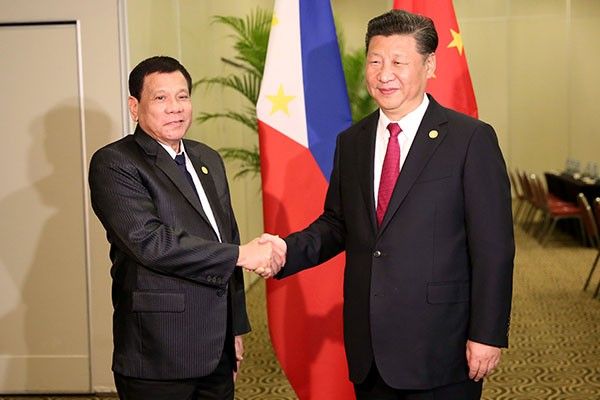China: Reject 'Cold War' mentality; seek partners, not allies

MANILA, Philippines — China this week called for a rejection of a "Cold War" mentality in the Asia Pacific region, saying nations should pursue partnerships instead of alliances.
China, in a policy paper published by the State Council Information Office and released to media by the Chinese Embassy, said good relations between powerful countries in the region will affect peace and development of the Asia Pacific.
It did not name specific countries, but a separate section listed China's relations with the US, Japan, India and Russia. The US, particularly, has been stepping up military activity in the region in its so-called pivot to Asia.
"Major countries should treat the strategic intentions of others in an objective and rational manner, reject the Cold War mentality, respect others' legitimate interests and concerns, strengthen positive interactions and respond to challenges with concerted efforts," China said.
Meanwhile, China said, "small and medium-sized countries need not and should not take sides among big countries." Instead, nations should prefer dialogue to confrontation and "pursue partnerships rather than alliances."
'Common security'
In the paper, which also laid out China's vision for regional security, China said the region should work for common security, which it said should "respect and ensure the security of each and every country involved."
China has been strengthening its control over disputed parts of the South China Sea, part of which Manila claims and calls the West Philippine Sea. An international tribunal ruled in July 2016 that China's wide claim over the South China Sea had no legal basis and that the Philippines has rights to Scarborough Shoal, which is also called Panatag Shoal and Bajo de Masinloc.
The two countries have agreed to enter bilateral talks on the maritime dispute. The Philippines has also, at least for now, set aside the tribunal's decision and the dispute itself.
China said countries should not work toward what it called absolute security "at the expense of the security of others."
It also warned that "to beef up a military alliance targeted at a third party is not conducive to maintaining common security."
President Rodrigo Duterte, who has declared an independent foreign policy for the Philippines, announced during his state visit to Beijing last October his "separation from the United States both in the military... not social, but economics also."
He later said that the break will not include severing diplomatic ties. The president has since hinted at canceling the Visiting Forces Agreement with the US, which allows American troops on Philippine territory for training and for cooperation on matters like terrorism.
"I have separated from them so I will be dependent on you (China) for a long time but don't worry we will also help," the president also said in Beijing in October.
He has since said that China and Russia, with whom the Philippines has been trying to forge stronger relations, are willing to help the Philippines in its war on drugs and with military and police equipment.
- Latest
- Trending





























